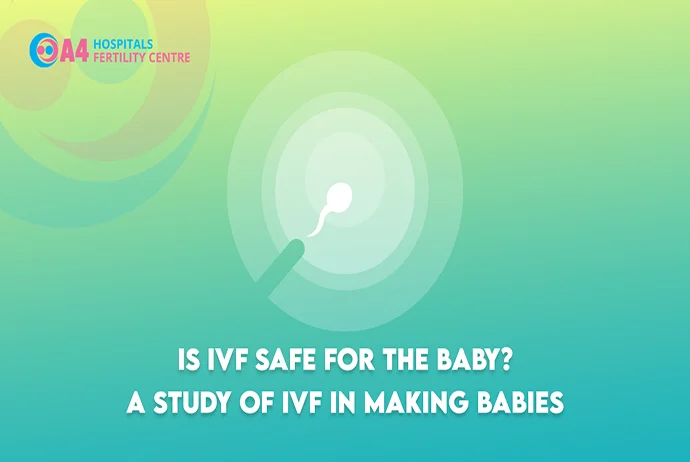
Dr. Aruna Ashok MBBS, MS OG, DNB OG
- Clinical Director

In vitro fertilization (IVF) is becoming a more common choice for couples having fertility issues. As a consequence, there are increasing concerns about the safety of IVF and its possible long-term impacts on the health of babies conceived using this technique. This piece will look at the safety of IVF for babies, reviewing the current studies and addressing common concerns.


Because of advances in reproductive technology and greater knowledge of the variables that lead to successful outcomes, IVF success rates have increased considerably over the last few decades. While there are dangers associated with IVF, such as multiple pregnancies and premature delivery, numerous studies have shown that the majority of children produced through IVF are healthy and grow normally.
Some studies have found that IVF-conceived infants have a slightly higher risk of congenital malformations and chromosomal abnormalities than those born naturally. However, the total risk is still relatively low, and many experts believe that the increased risk is more closely related to the underlying causes of infertility than to the IVF procedure itself.
The majority of studies indicate that the long-term health outcomes of IVF-produced children are comparable to those of naturally-conceived children. Some studies have found a slightly increased risk of certain health conditions, such as cardiovascular problems and metabolic disorders, but these findings must be investigated further to determine whether the risk is directly attributable to IVF or other factors, such as family health or lifestyle.
The risk of multiple pregnancies, which can lead to premature birth and other complications, is one of the most severe safety concerns with IVF. To reduce this risk, many fertility clinics, including A4 Fertility Clinic, advocate single embryo transfer (SET) when appropriate. Transferring only one embryo reduces the risk of multiple births, resulting in improved outcomes for both mother and child.
PGT is a sophisticated method used in combination with IVF to screen embryos for particular genetic disorders before they are placed in the uterus. PGT can aid in the identification of chromosomal normal eggs, lowering the risk of birth abnormalities and miscarriages. This extra screening procedure can help to improve the overall safety of IVF and increase the chances of having a healthy infant.
While there are some dangers associated with IVF, the vast majority of babies conceived through this technique are healthy and grow normally. Advances in reproductive technology, such as single embryo transfer and pre implantation genetic testing, have increased the safety and success rates of IVF even further. Couples contemplating IVF should speak with a qualified fertility expert who can provide personalized advice and handle any possible risks.
At A4 Fertility Clinic, we are committed to offering safe and efficient fertility therapies, such as IVF, to help couples realize their goal of becoming parents. Our expert team carefully monitors each patient's development to ensure the highest level of treatment while prioritizing the safety of both mother and infant. We aim to provide the best potential outcomes for our patients on their journey to parenthood by keeping current on the latest study and utilizing cutting-edge technologies.